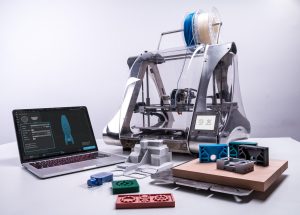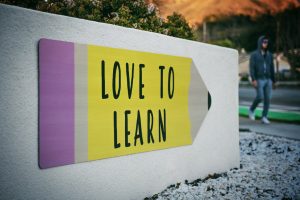ED Tech Inquiry
For this week’s blog, we have decided to discuss the pros towards including technology shortcuts into the classroom. As a group we discussed some pros to having technology shortcuts in a classroom from previous experiences or observations. To further our understanding and perspective on this topic we found an article. The article “What Middle School Educators Should Know about Assistive Technology and Universal Design for Learning” by Victoria Zascavage and Kathleen Winterman explains:
- There are many students with learning disabilities that are unable to succeed to their full potential without some aid from technology shortcuts.
- Spelling is a challenge with many students. Having some help for the weaker spelling students gains them some independence because they do not have to rely so heavily on peers, teachers, or others in the classroom.
- Technology shortcuts can also aid students progress their writing skills. As the students become stronger writers, they can eliminate some of the help to be more independent. For example, a student can begin by using word predictions and then switch to spell check.
- Technology shortcuts are also a UDL. These tools provide the teacher with different ways to present the information to meet the needs of their students.
For students who frequently experience “deficits in metacognition” as this article explains, this technology aids in students ability to set goals, focus, and monitor their progress.
The article link: https://www.tandfonline.com/doi/pdf/10.1080/00940771.2009.11461681
This article speaks to benefits of ‘Speak to Text’ and the pros as described:
- Learning disabilities, including dyslexia and dysgraphia
- Repetitive strain injuries, such as carpal tunnel syndrome
- Poor or limited motor skills
- Vision impairments
- Physical disabilities
- Limited English Language
The link: https://www.readingrockets.org/article/speech-recognition-learning
This article describes the importance of accuracy in language and presentation in terms of using spell check and grammar check to ensure a professional image. Because these tools are not completely reliable, students should have a basic grasp of language skills and how to use these tools appropriately. Since these tools are available in the classroom and their use is so wide spread, students should have exposure to these tools.
The link: https://www.teachhub.com/technology-classroom-grammar-check-websites



 Khan Academy Group Blog
Khan Academy Group Blog

 In our ed tech class, we watched the documentary RiP! Remix Manifesto by Brett Gaylor. It essentially talks about the concept of copyright in the music world. In it he follows Girl Talk aka, Greg Gillis who lives as a bio-medical engineer by day and a dj/mashup artist by night. Despite its popularity, Gillis has found himself in hot water over the music he produces because he takes samples of other peoples music, plays with it to create a sound he likes and mixes it with other music and sounds. Though he acknowledges using other peoples creations within the body of his work, to him, he is creating his own music. Gillis has stated that he feels sampling is like an instrument. “There are no original music concepts anyways,” he said. “Even if it’s subconscious, and even if your music isn’t sampled, it’s still based on another idea. Sampling is an original idea, except with more blatant influence from other ideas. It’s really all about how you present your idea in its context” (The Tartan, 2006).
In our ed tech class, we watched the documentary RiP! Remix Manifesto by Brett Gaylor. It essentially talks about the concept of copyright in the music world. In it he follows Girl Talk aka, Greg Gillis who lives as a bio-medical engineer by day and a dj/mashup artist by night. Despite its popularity, Gillis has found himself in hot water over the music he produces because he takes samples of other peoples music, plays with it to create a sound he likes and mixes it with other music and sounds. Though he acknowledges using other peoples creations within the body of his work, to him, he is creating his own music. Gillis has stated that he feels sampling is like an instrument. “There are no original music concepts anyways,” he said. “Even if it’s subconscious, and even if your music isn’t sampled, it’s still based on another idea. Sampling is an original idea, except with more blatant influence from other ideas. It’s really all about how you present your idea in its context” (The Tartan, 2006).
Recent Comments